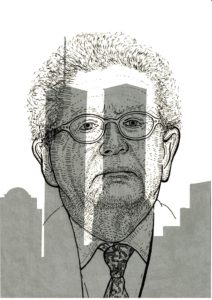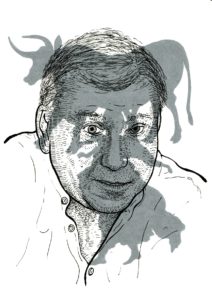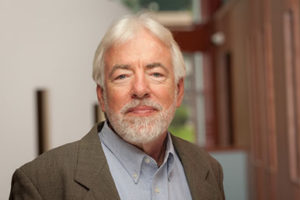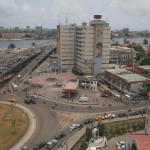Dominique Moïsi ~ Triomf van de angst – De geopolitiek van series
Waarom zijn series zo mateloos populair is de vraag die politiek filosoof Dominique Moïsi stelt en gelijk ook beantwoordt: series geven inzicht in de geopolitieke verhoudingen en de dominante emoties in de wereld van vandaag en morgen.
Moïsi analyseert in ‘Triomf van de angst’ vijf series: ‘Game of Thrones’, ‘Homeland’, ‘Downton Abbey’, ‘House of Cards’ en ‘Occupied’, mooier gemaakt dan ooit, maar ze brengen sinds 9/11 vooral een wereld van angst en onveiligheid.
Moïsi wil laten zien hoe de series resoneren met de stemmingen die we voelen maar die slechts zelden duidelijk worden gearticuleerd: televisieseries zijn misschien wel hét universele culturele referentiepunt geworden en fungeren zelfs als verklaringsmodel.
11 september 2001 kan gezien worden als een kantelmoment in de wereld: Amerika was kwetsbaar geworden. De gevoelens van angst en ongerustheid die hiermee gepaard gingen, werden verwerkt in series. Amerika wordt nu niet meer gepresenteerd als het optimistische en moralistische Amerika, maar een Amerika dat onzeker is over identiteit en toekomst. ‘Het idealisme van gisteren heeft plaatsgemaakt voor het cynisme van vandaag en voor de overwinning van ‘de slechten’ op ‘de goeden’, aldus Moïsi.
De series weerspiegelen een wereld die na het instorten van het Sovjetrijk en 9/11 op zoek is naar een nieuw evenwicht. Het Westen is niet langer dominant in de wereld, de situatie in het Midden-Oosten is in grote verandering, een vernederd en revisionistisch Rusland is terug op het wereldtoneel, en we ontberen in het Westen leiders.
In deze context van chaos, is het onvermijdelijk dat angst in de huidige series de belangrijkste leidraad wordt op geopolitiek gebied, aldus Moïsi. Zo staat de serie ‘Game of Thrones’ voor angst, voor chaos en voor een terugkeer van barbaarse toestanden. Met al zijn brute geweld geeft de serie een getrouwe afspiegeling van onze gevoelens van angst en fascinatie die wij koesteren over ons huidige chaotische systeem. Read more
Open Culture: Public Domain Day Is Finally Here!: Copyrighted Works Have Entered The Public Domain Today For The First Time In 21 Years
![]() Earlier this year we informed readers that thousands of works of art and entertainment would soon enter the public domain—to be followed every year by thousands more. That day is nigh upon us: Public Domain Day, January 1, 2019. At the stroke of midnight, such beloved classics as Robert Frost’s “Stopping by Woods on a Snowy Evening” and “Yes! We Have No Bananas” will become the common property of the people, to be quoted at length or in full anywhere when the copyright expires on work produced in 1923. Then, 1924 will expire in 2020, 1925 in 2021, and so on and so forth.
Earlier this year we informed readers that thousands of works of art and entertainment would soon enter the public domain—to be followed every year by thousands more. That day is nigh upon us: Public Domain Day, January 1, 2019. At the stroke of midnight, such beloved classics as Robert Frost’s “Stopping by Woods on a Snowy Evening” and “Yes! We Have No Bananas” will become the common property of the people, to be quoted at length or in full anywhere when the copyright expires on work produced in 1923. Then, 1924 will expire in 2020, 1925 in 2021, and so on and so forth.
It means that “hundreds of thousands of books, musical compositions, paintings, poems, photographs and films” will become freely available to distribute, remix, and remake, as Glenn Fleishman writes at Smithsonian. “Any middle school can produce Theodore Pratt’s stage adaptation of The Picture of Dorian Gray, and any historian can publish Winston Churchill’s The World Crisis with her own extensive annotations… and any filmmaker can remake Cecil B. DeMille’s original The Ten Commandments.”
Read more: http://www.openculture.com/2019/01/public-domain-day-is-coming.html
Henry David Thoreau ~ On The Duty Of Civil Disobedience
Civil Disobedience is Thoreau’s primary essay on how to interact with Government. Here the author argues that a citizen must always uphold conscience over what is prescribed by law. Never one to accept the status quo, Thoreau says that if called, we must all disobey a system that is inherently prone to corruption and that even personal endangerment may be needed in order do what is right. An inspiration to luminaries such as Gandhi and Martin Luther King Jr., this essay is one of the core American writings on government.
Read or download the book: http://www.gutenberg.org/ebooks/71
Ivan Krastev ~ Na Europa
Ivan Krastev (1965), hoofd van het Centre for Liberal Strategies in Sofia en medeoprichter van de pan-Europese denktank European Council for Foreign Relations, analyseert in Na Europa de toekomst van het Europese project. Krastev bespreekt de huidige staat van Europa aan de hand van de vluchtelingencrisis en het populisme en concludeert dat Europa er behoorlijk slecht voor staat. Europa heeft zijn centrale plaats in de wereldpolitiek en het
vertrouwen van de Europeanen zelf verloren.
Europa spreekt minder aan dan ooit. Wat de Unie eerder bijeenhield, een gedeelde herinnering aan WO II, heeft inmiddels zijn kracht verloren. De geopolitieke reden voor Europese eenheid verdween met het uiteenvallen van de Sovjet-Unie. Ook de verzorgingsstaat, ooit de kern van de naoorlogse politieke consensus, staat sinds de opkomst van het kapitalisme in de 70er jaren ter discussie.
Maar ook de veranderende ideologie in de wereld speelt de EU parten: de Unie ziet niet wat anderen beweegt. Men dacht dat het Westen voor eeuwig de wereld kon transformeren en de rest van de wereld voor altijd het Westen zou nabootsen. De ambitie onze waarden en instituties te exporteren heeft geleid tot een hevige identiteitscrisis in het Westen, waarin het erfgoed van het christendom en de verlichting niet langer veilig is, aldus Krastev.
Brussel geloofde onvoorwaardelijk in zijn eigen politieke en sociale model en was onkritisch ten aanzien van de wereldgeschiedenis. Men dacht dat het nationalisme en de politieke theologie achter ons lagen, maar in China, India en Rusland en de islamitische wereld zien we ethisch nationalisme en religie als belangrijke krachten, aldus Krastev. ‘Europa onderscheidt zich weliswaar middels postmodernisme, postnationalisme, en secularisme maar dat betekent niet dat zij trendsetter is van de mondiale ontwikkelingen.’
Als we ons realiseren dat de vluchtelingencrisis het karakter van de democratische politiek op nationaal niveau ingrijpend heeft veranderd, dan kunnen we misschien het risico op desintegratie het hoofd bieden. Ze is de enige pan-Europese crisis die het politieke, economische en maatschappelijke model van Europa ter discussie stelt: de vluchtelingencrisis bleek het Europese 9/11 te zijn. Als reactie op de migratie zien we een populistische opstand tegen het establishment, en een rebellie van de kiezers tegen de meritocratische elites als die in Brussel. Read more
Oligarchy Is Destroying Our Society And The Planet
Is capitalism on the brink of joining the dustbin of history? And what would a post-capitalist society and a sustainable economy look like?
Since the onset of the Industrial Revolution, the world has experienced historically unprecedented levels of growth, with capitalism raising the standard of living of many nations. At the same time, capitalism has generated immense contradictions (exploitation of labor and nature, huge economic inequalities and gross social injustices), and these traditionally have been the main foci of radical political movements advancing the vision of a just socioeconomic order. But is the era of capitalist growth now coming to an end?
Renowned economist James Boyce, senior fellow at the Political Economy Research Institute at the University of Massachusetts, Amherst, offers critical insights on all of these questions, which should be food for thought for all progressives in the age of the revival of democratic socialism. Professor Boyce is the author of the forthcoming books Economics for People and the Planet: Inequality in the Era of Climate Change and The Case for Carbon Dividends.
C.J. Polychroniou: There are economists today who are arguing that the era of capitalist economic growth is over. Is capitalism, in your own view, on its deathbed, soon to join the dustbin of history like previous economic systems such as feudalism?
James Boyce: Your question really has two parts. One is about the future of capitalism, the other about the future of economic growth. The answers depend on what we mean by both of these terms, “capitalism” and “economic growth.”
Let me start with growth. Whenever we talk about this, we need to ask: Growth of what? Conventional economists use the term to mean growth of GDP, gross domestic product, the monetary value of all the goods and services produced in the economy that carry a price tag. Yet we know that GDP is a hodgepodge of things that are good, bad and useless. It not only includes good things, like food and housing and music, but also bad things, like the costs resulting from wars, prisons and environmental disasters. GDP also includes some useless things, like one-upmanship spending for what Thorstein Veblen called “conspicuous consumption,” the aim of which is merely to attain a higher position in the social pecking order, spending that does not add to a society’s well-being since one person’s gain is just another’s loss. The only thing that all the items counted in GDP have in common is that they carry a market price tag.
At the same time, GDP doesn’t count much that is very important to human well-being. It doesn’t count good things without a price tag, like the unpaid labor devoted to caring for children and the elderly, or ecosystem services, or any of the proverbial “best things in life that are free.” It doesn’t account for things that reduce our well-being like environmental degradation and violence. So, all in all, GDP is a deeply flawed measure of a society’s well-being. Preoccupation [with] how fast it grows is misplaced.
The same applies to “limits to growth,” a phrase popularized by some well-meaning environmentalists. Of course, there are limits to growth, if by this we mean the growth of bad things like pollution, natural resource depletion, imprisonment or violence. None of these can grow forever. The limits may be hard to identify with precision – what, for example, is the maximum percent of a nation’s population that can be put in jail? Three percent? Ten? Twenty-five? – but we know there is a limit. Read more
Pooyan Tamimi Arab ~ Spinoza, materiële religie en de vreemdeling – Spinozadag 2018
Dr. Pooyan Tamimi Arab is universitair docent religiewetenschappen aan de Universiteit Utrecht. In zijn onderzoek richt hij zich op betwiste afbeeldingen, Islam en religieuze diversiteit in Nederland. In de recente publicatie “Amplifying Islam in the European Soundscape” onderzoekt hij hoe Islamitische geluiden in Nederland de culturele normen uitdagen en in hoeverre deze gereguleerd worden door de Nederlandse grondwet en overheid.
Zie: https://amsterdamsespinozakring.nl/
Zie ook: http://rozenbergquarterly.com/david-kenning-spinoza-philosopher-of-counter-radicalization/





